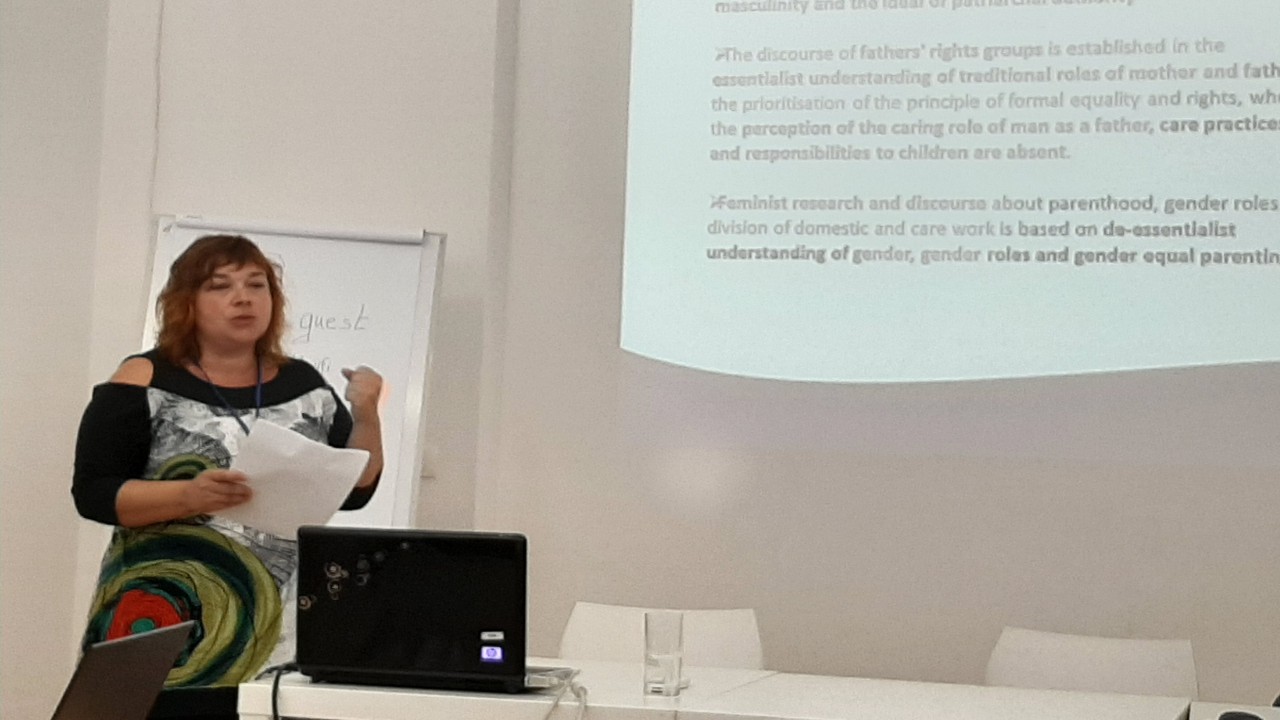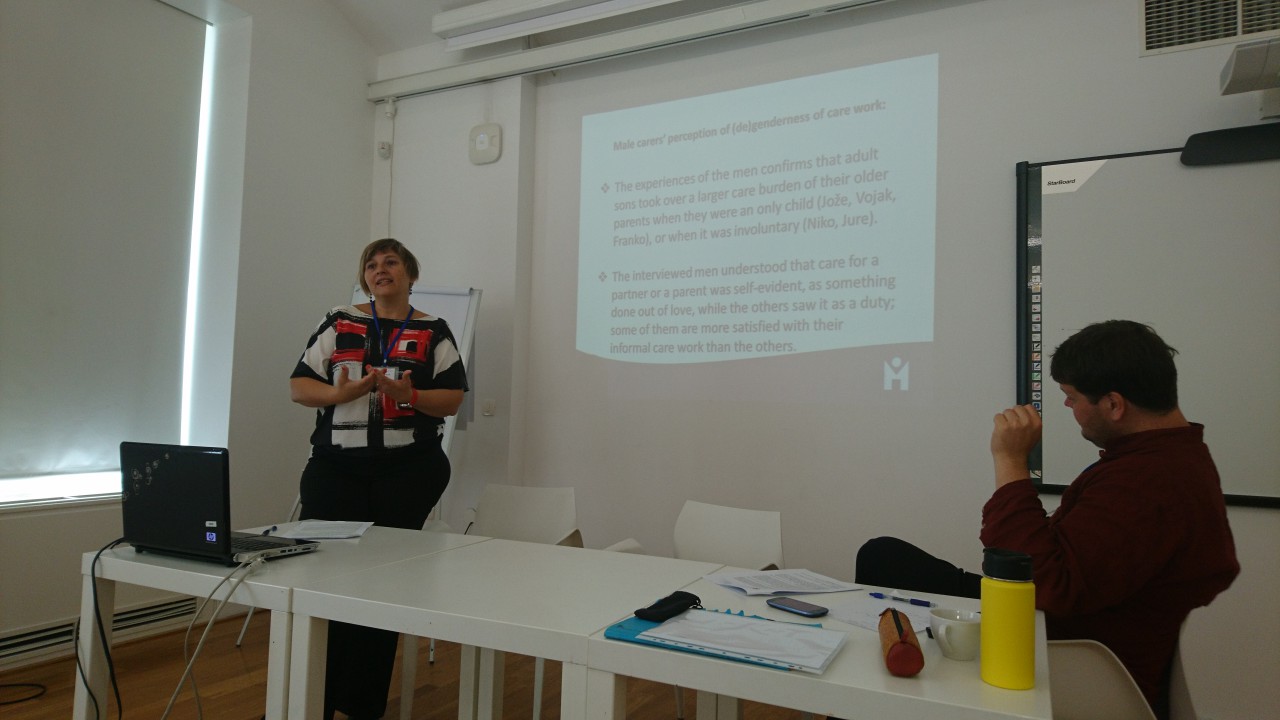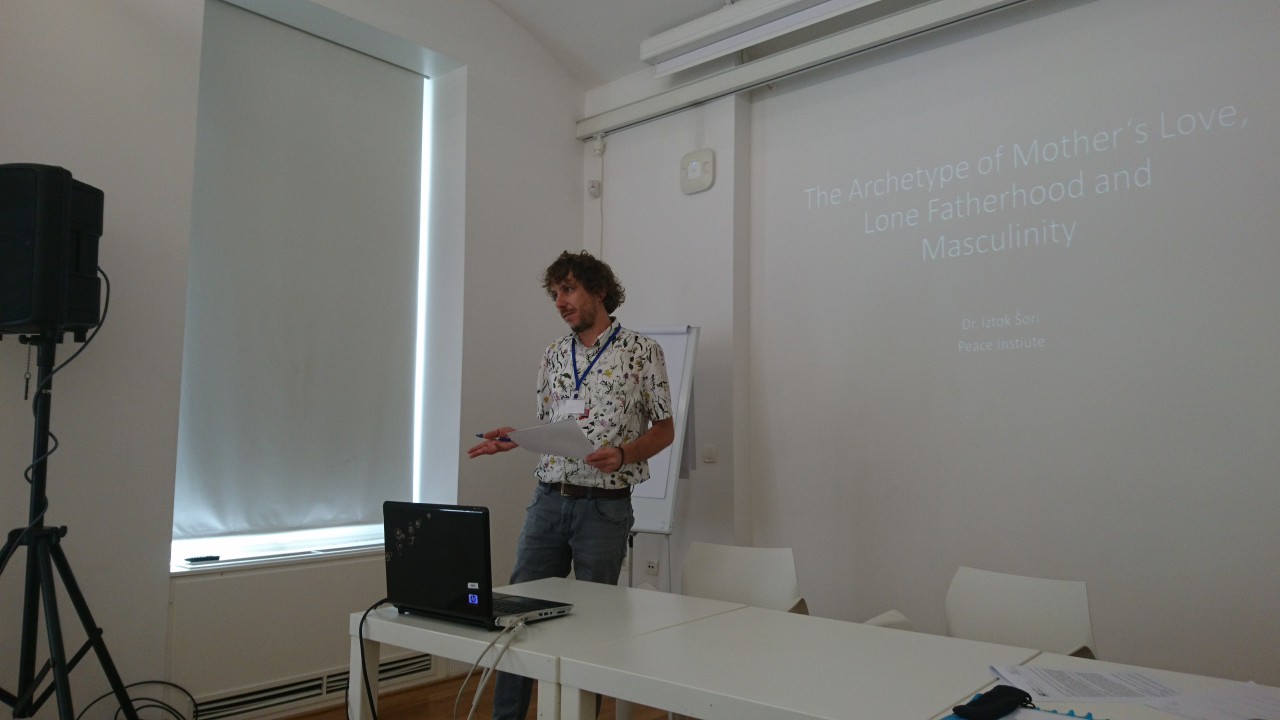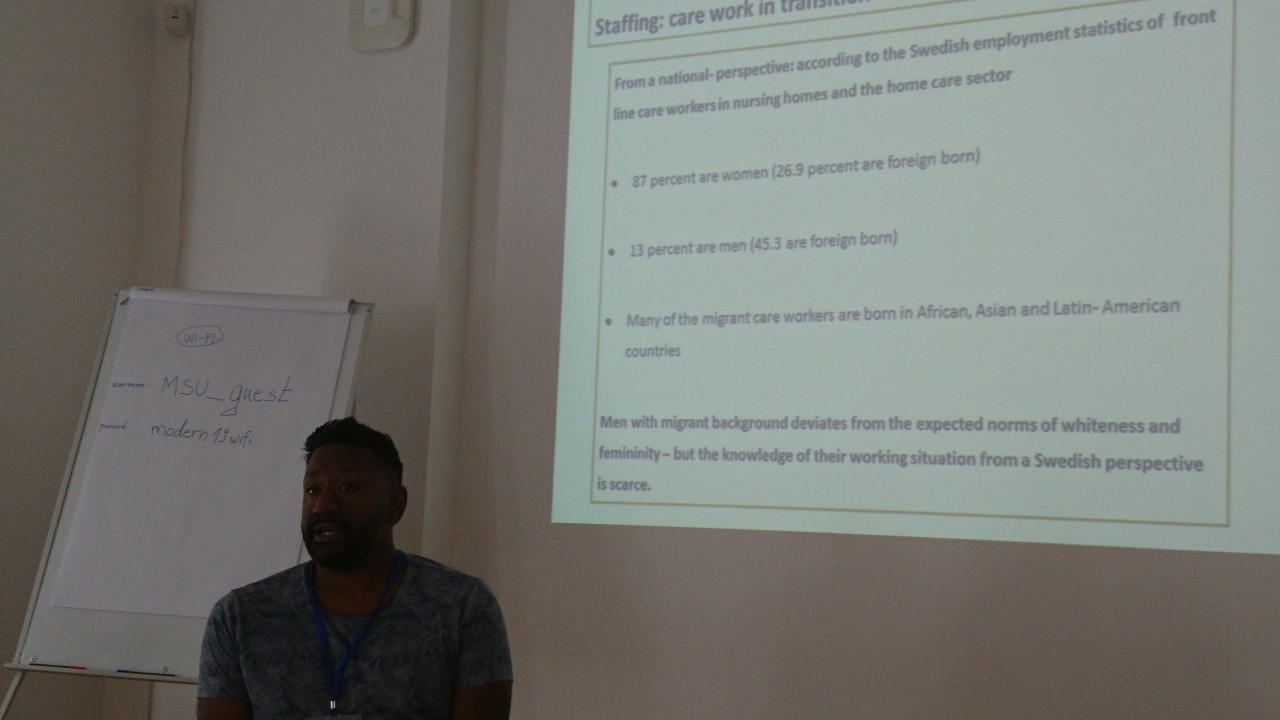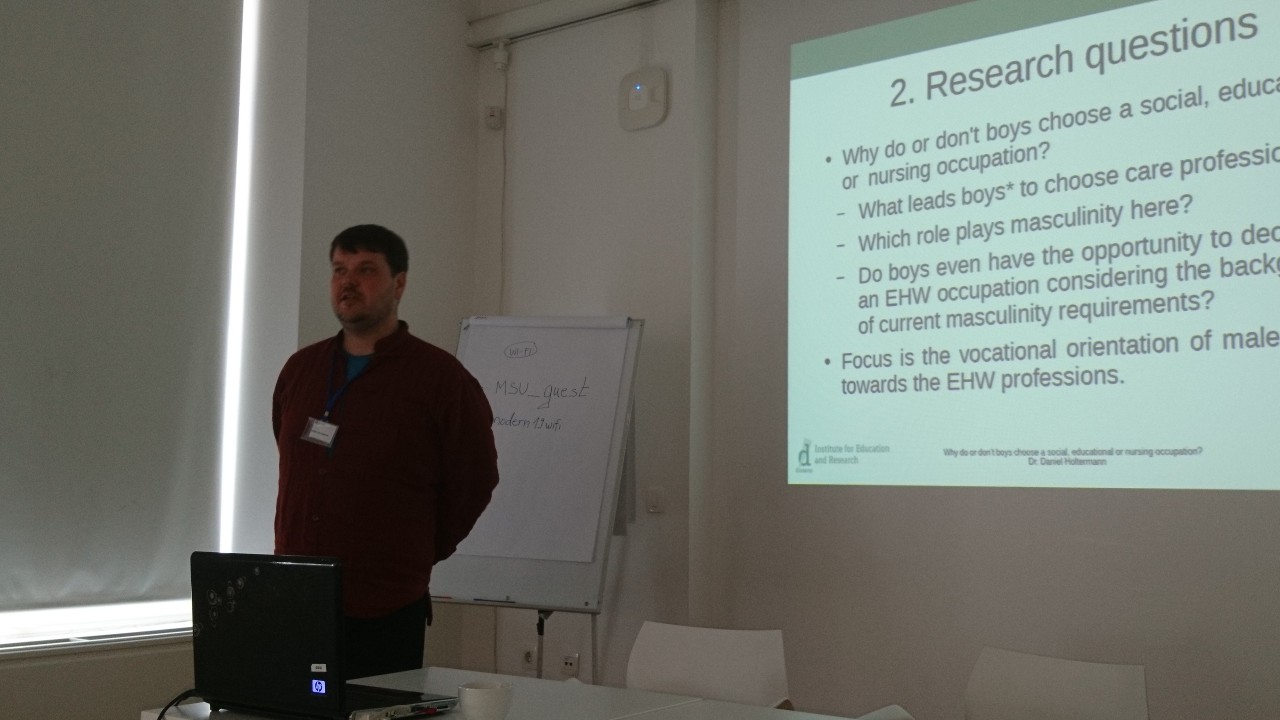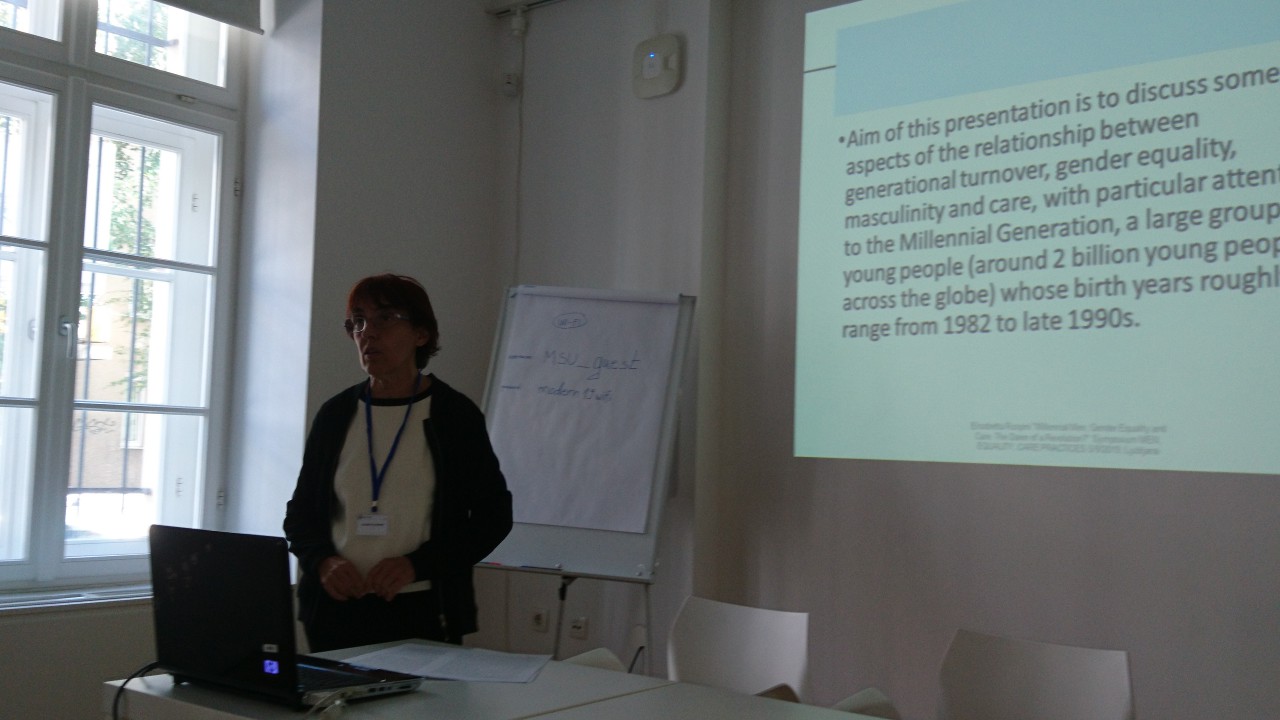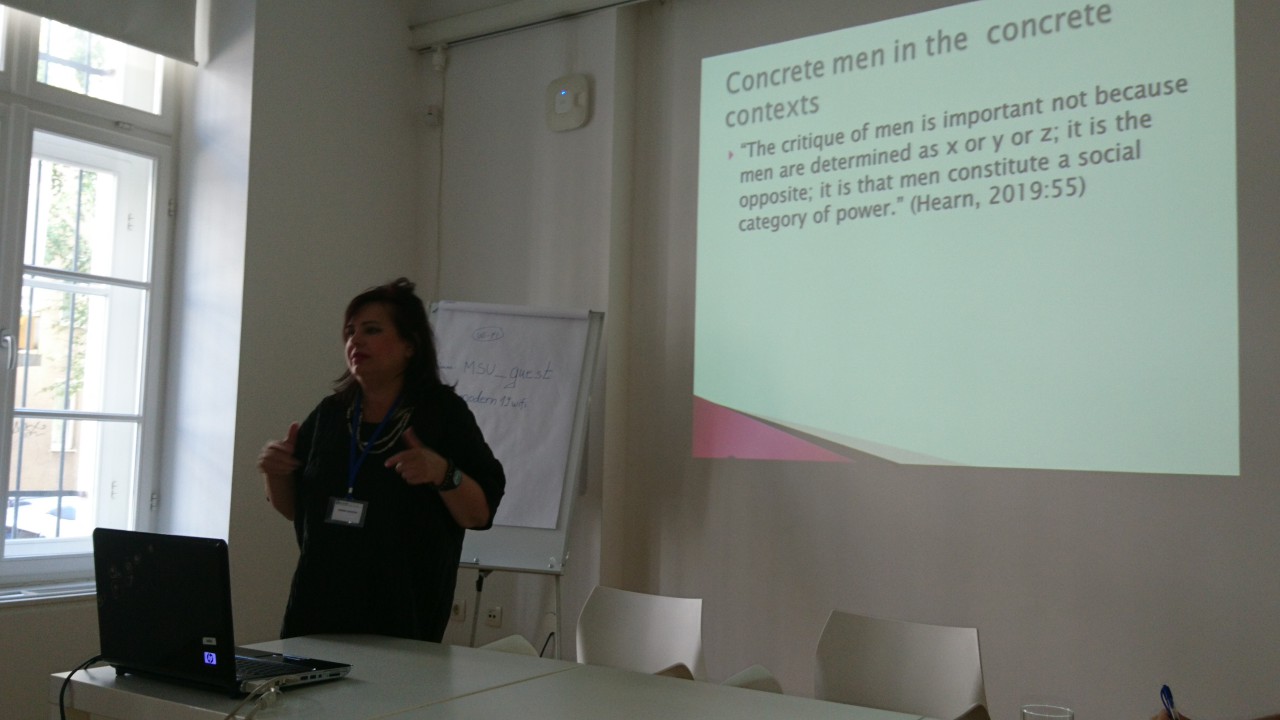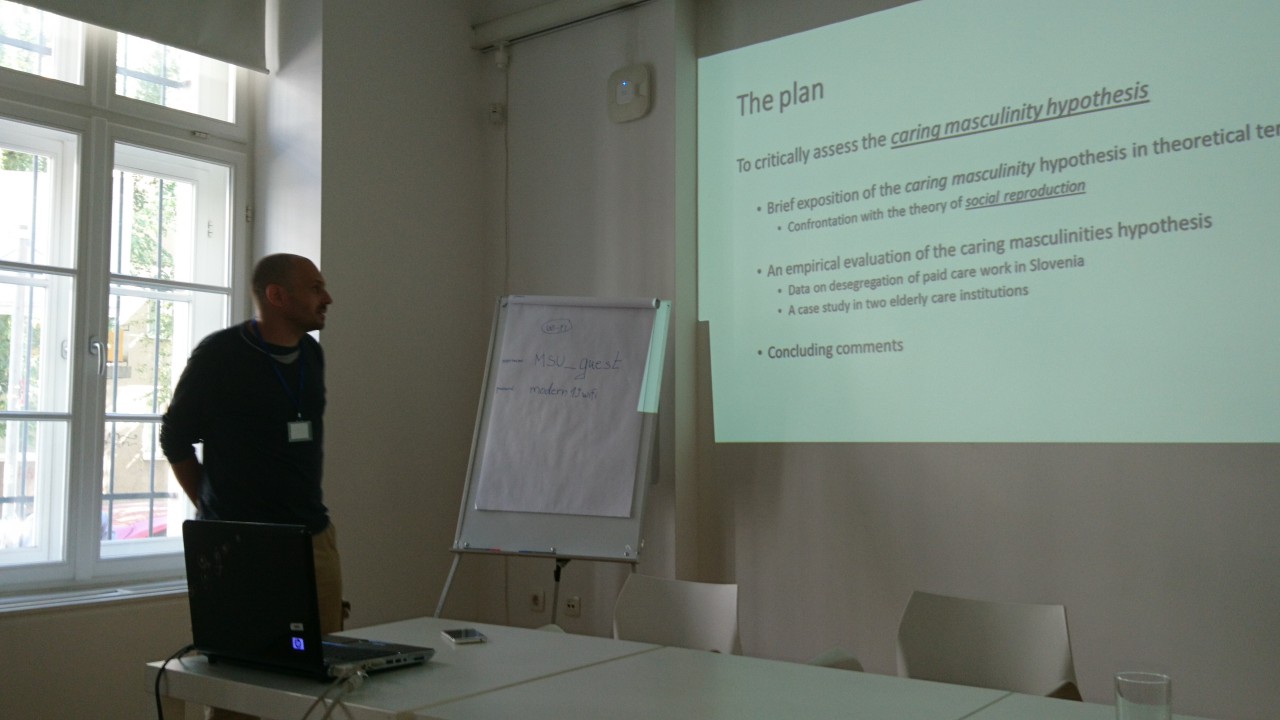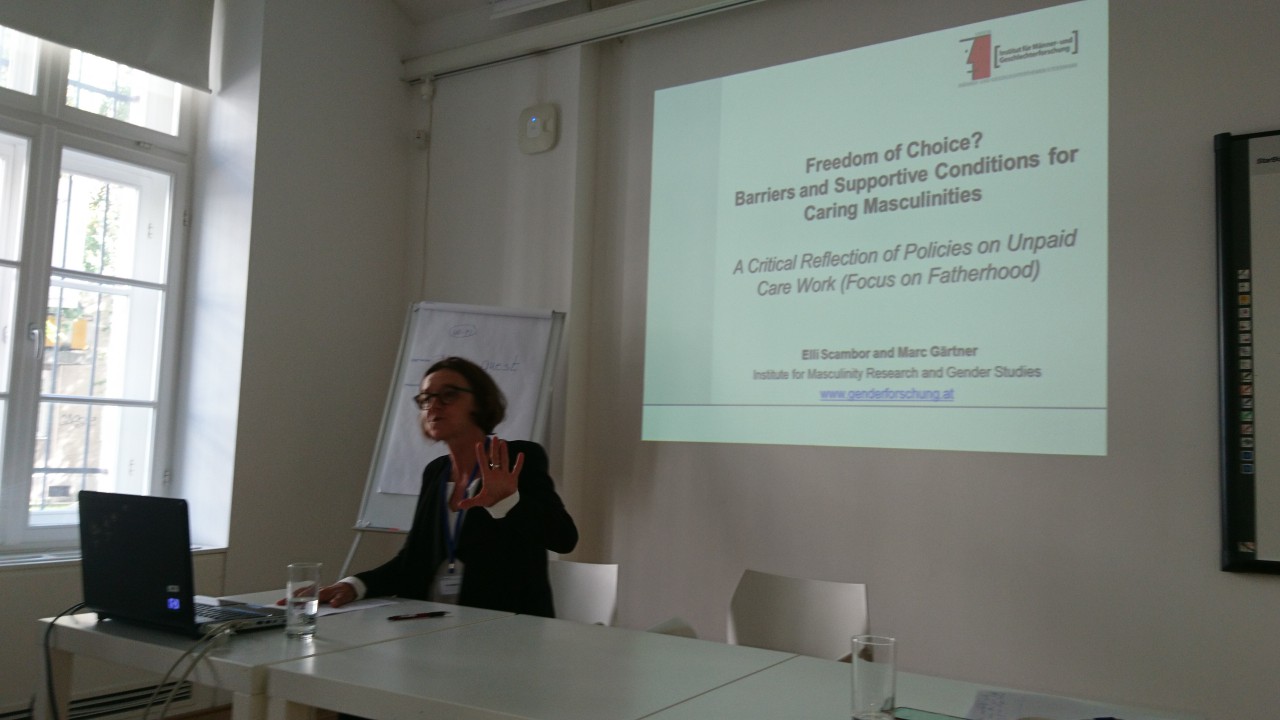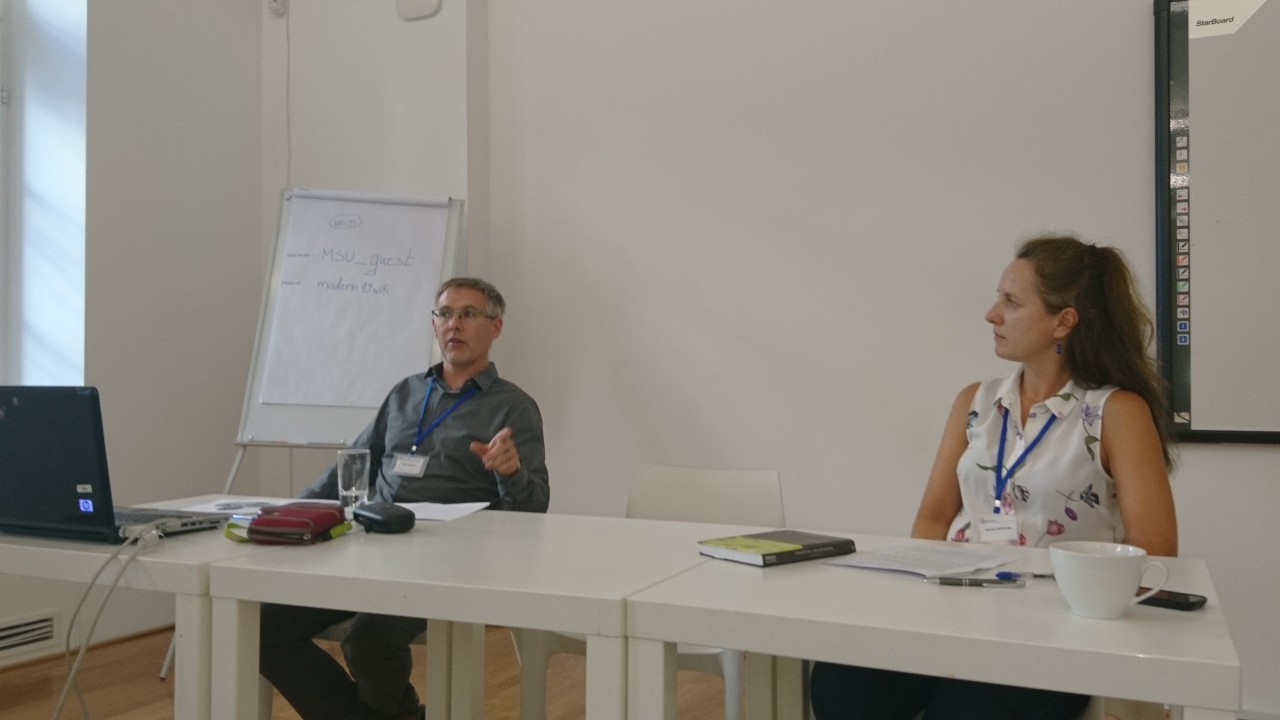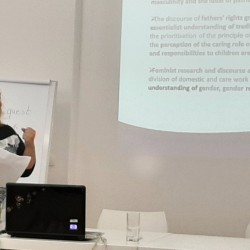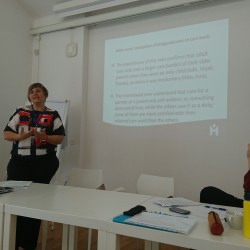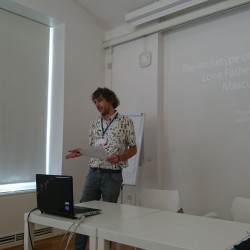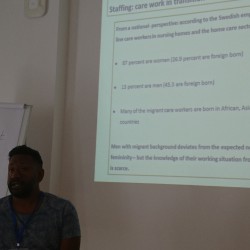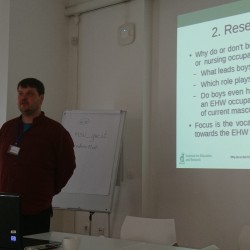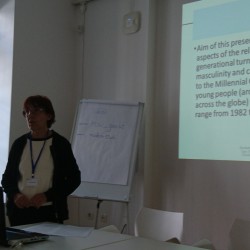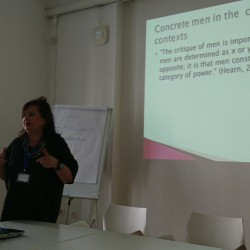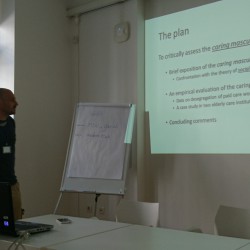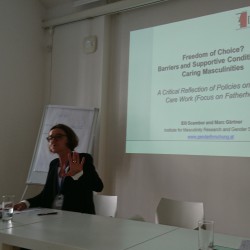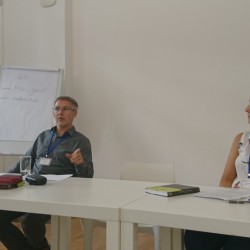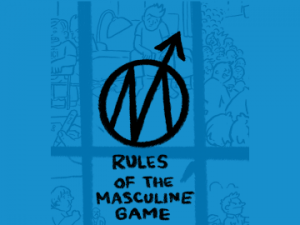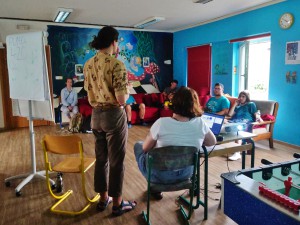International symposium ‘Men, Equality, Care Practices’
10. 9. 2019 | Gender
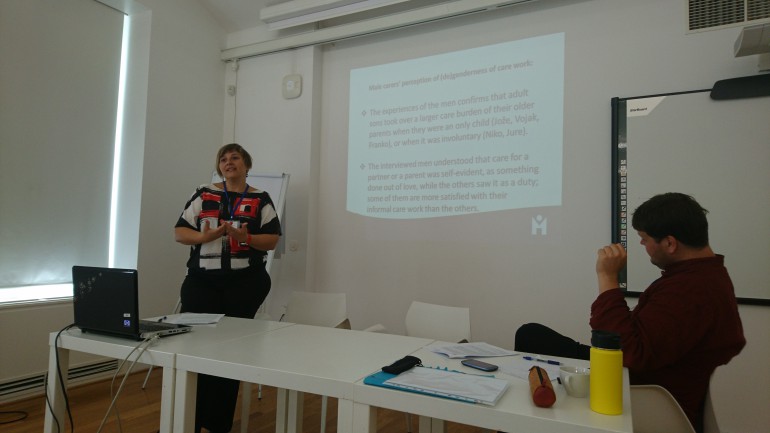
Though the low level of men’s care giving has appeared to be remarkably resistant to a wide range of demographic, political and economic changes and has remained the central source of patriarchal dividends, European research evidence provides some insights on the increase in participation of men in private and professional care. There is a lot of complexity in men’s caring involvement; nevertheless, it might challenges hegemonic masculinity and populist re-traditionalization of gender roles. These issues have been debated at the international symposium Men, Equality, Care Practices organized by the Peace Institute on 5th September 2019 in Ljubljana.
Niall Hanlon in his keynote speech Caring Masculinities and Affective Equality; the Role of Caring in Gender Justice and Transforming Masculinities pointed that critical studies of men and masculinities are crucial in highlighting the ways men are responding to, or lagging, greater expectations for caring. He analysed how masculinities are being negotiated, transformed, and transforming gender relations through caring, or how are they resisting and reproducing inequality by evading it. Marina Blagojević Hugson in her speech revisited empirical reserach in Balkan region from the 1980 to 2018. She argued that while in the beginning of that period inclusion of men into caring was seen as a part of achieving gender equality within the overall progressive change, at the end of this period, care is becoming appropriated as a „tool“ for change of men to become more adapted to the neoliberal conditions of life. Palle Storm pointed that in Sweden increasing number of migrant male work as care workers in long-term care settings and based on individual interviews analysed how they negotiate their norms about masculinity.
More information about the content of the symposium can be found in the attached List of Abstracts.

